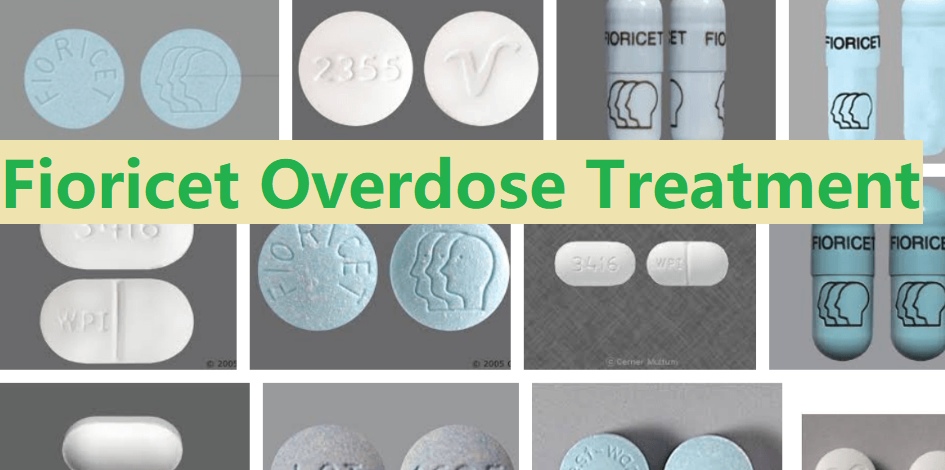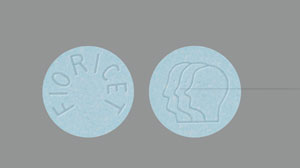Proper Use
Take this medicine only as directed by your doctor. Do not take more of it, do not take it more often, and do not take it for a longer time than your doctor ordered. If butalbital and acetaminophen combination is taken regularly (for example, every day), it may become habit-forming (causing mental or physical dependence). The caffeine in some butalbital and acetaminophen combinations can also increase the chance of dependence. Dependence is especially likely to occur in patients who take these medicines to relieve frequent headaches. Taking too much of this medicine may also lead to liver damage or other medical problems.
This medicine will relieve a headache best if you take it as soon as the headache begins. If you get warning signs of a migraine, take this medicine as soon as you are sure that the migraine is coming. This may even stop the headache pain from occurring. Lying down in a quiet, dark room for a while after taking the medicine also helps to relieve headaches.
People who get a lot of headaches may need to take a different medicine to help prevent headaches. It is important that you follow your doctor’s directions about taking the other medicine, even if your headaches continue to occur. Headache-preventing medicines may take several weeks to start working. Even after they do start working, your headaches may not go away completely. However, your headaches should occur less often, and they should be less severe and easier to relieve than before. This will reduce the amount of headache relievers that you need. If you do not notice any improvement after several weeks of headache-preventing treatment, check with your doctor.
Dosing
The dose medicines in this class will be different for different patients. Follow your doctor’s orders or the directions on the label. The following information includes only the average doses of these medicines. If your dose is different, do not change it unless your doctor tells you to do so.
The amount of medicine that you take depends on the strength of the medicine. Also, the number of doses you take each day, the time allowed between doses, and the length of time you take the medicine depend on the medical problem for which you are using the medicine.
- For oral dosage forms (capsules or tablets):
- For tension headaches:
- Adults—One or 2 capsules or tablets every four hours as needed. If your medicine contains 325 or 500 milligrams (mg) of acetaminophen in each capsule or tablet, you should not take more than six capsules or tablets a day. If your medicine contains 650 mg of acetaminophen in each capsule or tablet, you should not take more than four capsules or tablets a day.
- Children—Dose must be determined by your doctor.
Missed Dose
If you miss a dose of this medicine, take it as soon as possible. However, if it is almost time for your next dose, skip the missed dose and go back to your regular dosing schedule. Do not double doses.
Is it Safe to Take Fioricet While on Oxycodone?
It’s generally not recommended to take Fioricet (which contains butalbital, acetaminophen, and caffeine) and oxycodone together without consulting a healthcare provider first. Both Fioricet and oxycodone are medications that can cause drowsiness, dizziness, and respiratory depression. Combining them may increase the risk of these side effects and other adverse reactions, including overdose.
Here are some considerations regarding taking Fioricet and oxycodone together:
- Central Nervous System Depression: Both Fioricet and oxycodone are central nervous system depressants, meaning they can slow down brain activity. Taking them together can intensify this effect, leading to excessive sedation, drowsiness, confusion, and impaired coordination.
- Respiratory Depression: Combining Fioricet and oxycodone can also increase the risk of respiratory depression, where breathing becomes slow and shallow. This can be dangerous, especially in individuals with respiratory conditions or those taking high doses of both medications.
- Increased Risk of Overdose: Both Fioricet and oxycodone have the potential for abuse and addiction. Taking them together increases the risk of overdose, particularly if higher-than-prescribed doses are taken or if they are combined with other substances like alcohol or other central nervous system depressants.
- Liver Toxicity: Fioricet contains acetaminophen, which can cause liver damage when taken in excessive amounts. Combining Fioricet with oxycodone, which may also contain acetaminophen in some formulations, can increase the risk of liver toxicity, especially if the total daily dose of acetaminophen exceeds the recommended limit.
- Drug Interactions: Fioricet and oxycodone may interact with other medications, potentially increasing the risk of adverse effects or reducing the effectiveness of one or both drugs. It’s essential to inform your healthcare provider about all medications, supplements, and herbal products you are taking to avoid potential interactions.
If both Fioricet and oxycodone are prescribed to you by the same healthcare provider, they will consider factors such as your medical history, current medications, and the severity of your condition to determine the appropriate dosages and whether it’s safe for you to take them together. It’s crucial to follow their instructions carefully and to report any concerning symptoms or side effects promptly. If you have any questions or concerns about taking Fioricet and oxycodone together, consult your healthcare provider for personalized advice.

How to Treat Fioricet Overdosage ?
Treating Fioricet overdosage requires prompt medical attention and intervention to prevent serious complications. Fioricet contains three active ingredients: butalbital, acetaminophen, and caffeine. Overdosing on Fioricet can lead to toxicity from any of these components, with acetaminophen overdose being particularly concerning due to its potential to cause liver damage. Here are some steps for treating Fioricet overdosage:
- Seek Emergency Medical Assistance: If you suspect that you or someone else has overdosed on Fioricet, call emergency services immediately or go to the nearest emergency room. Time is critical in cases of overdose, and prompt medical intervention can help prevent serious complications.
- Provide Information: Provide healthcare providers with as much information as possible about the amount of Fioricet ingested, the time of ingestion, and any other medications or substances taken concurrently.
- Gastric Decontamination: In cases of recent ingestion, healthcare providers may perform gastric decontamination to remove the remaining medication from the stomach. This may involve inducing vomiting or administering activated charcoal to absorb the medication and prevent further absorption into the bloodstream.
- Acetaminophen Antidote: If the overdose involves a significant amount of acetaminophen, healthcare providers may administer N-acetylcysteine (NAC), an antidote that helps protect the liver from acetaminophen toxicity. NAC is most effective when administered within 8-10 hours of acetaminophen ingestion but can still provide benefit if given later.
- Monitoring and Supportive Care: Patients who have overdosed on Fioricet may require close monitoring of vital signs, liver function tests, and other laboratory parameters. Supportive care may include intravenous fluids, oxygen therapy, and medications to manage symptoms such as nausea, vomiting, and pain.
- Treatment of Complications: Depending on the severity of the overdose and associated complications, additional treatments may be necessary. For example, patients with liver damage may require further medical interventions, such as liver transplantation in severe cases.
- Psychological Support: Overdosing on medication can be distressing and may indicate underlying mental health issues. Patients who overdose on Fioricet should receive psychological support and counseling to address any underlying issues and prevent future occurrences.

